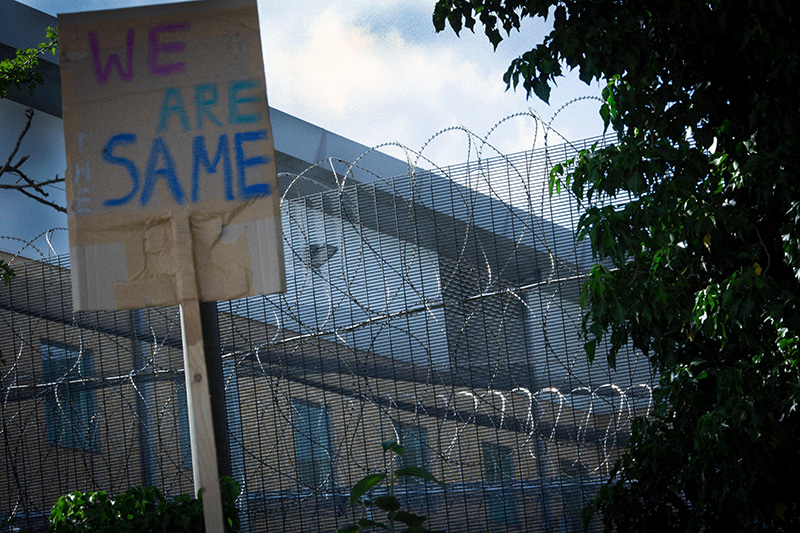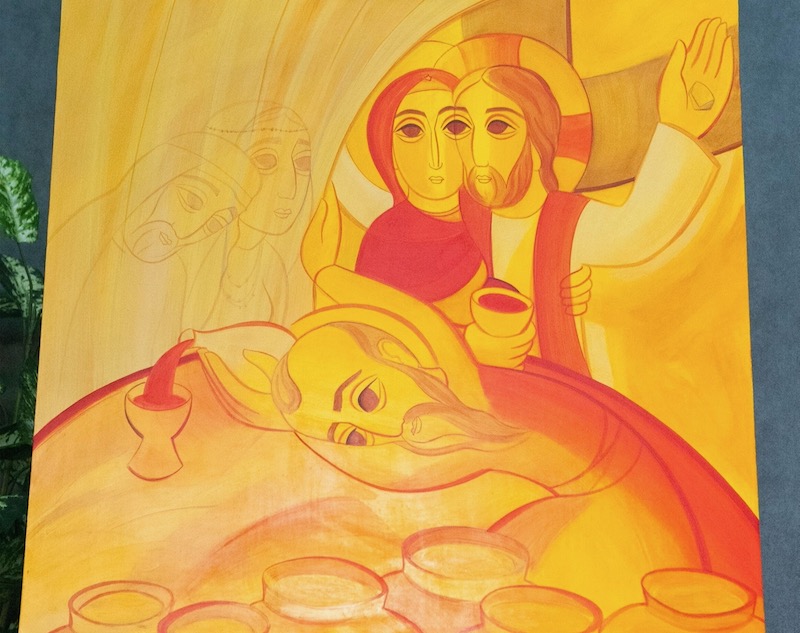Women who say Fr Marko Rupnik abused them have heavily criticised a statement from the Diocese of Rome on the priest-artist’s case, which they say “ridicules victims’ pain”.
In an open letter published by Italy Church Too, a platform for abuse victims, the women said they had been “left speechless” by a declaration from the Rome vicariate that has raised doubts about a disciplinary procedure against Fr Rupnik.
The declaration also praised the Rome-based centre Fr Rupnik founded for having a “healthy community life” despite one woman reportedly accusing him of abusing her in his room at the centre when she was a religious sister.
Fr Rupnik has been accused by more than a dozen women and one man of sexually, spiritually and psychologically abusing them over a 30-year period. Most of the abuse concerns the abuse of religious women at a Jesuit-affiliated community he helped found in Slovenia in the 1990s.
The Jesuits expelled Fr Rupnik from the order earlier this year. They said the allegations against him were credible and confirmed that in 2020, he was excommunicated in a ruling by the Dicastery for the Doctrine of the Faith for using the confessional to absolve a woman with whom he had engaged in sexual activity.
The excommunication was lifted soon after being enforced, after Fr Rupnik reportedly repented.
The former Jesuit is a prominent religious artist whose mosaics can be found in churches worldwide, including at the Vatican.
The Diocese of Rome launched a canonical investigation into the Centro Aletti (Aletti Centre) conducted by Fr Giacomo Incitti, a church law professor at the Pontifical Urbaniana University in Rome.
The Diocese of Rome is nominally led by the Pope, the Bishop of Rome, although a vicar handles the day-to-day management, Cardinal Angelo De Donatis. Pope Francis has recently made changes to the governance of the Diocese of Rome to give him more oversight of what goes on.
According to the Diocese of Rome’s 18 September statement, the Centro Aletti “is free of any particular critical issues,” and that Fr Incitti found “gravely anomalous procedures” regarding Fr Rupnik’s excommunication.
The investigation, the report went on, “generated well-founded doubts even about the request for excommunication itself” and has led Cardinal De Donatis to submit the findings to “the competent authorities”.
The statement added that members of the Aletti community were “embittered by the accusations received and the manner in which they were handled” but that they “chose to maintain silence – despite the vehemence of the media – to guard their hearts and not claim some irreproachability with which to stand as judges of others.”
In their open letter, the Rupnik victims said the diocese’s report “exonerates Rupnik of any responsibility, ridicules the pain of the victims, but also of the whole Church, mortally wounded by such blatant hubris.”
The women also lament the recent private audience given by Francis to Maria Campatelli, the Aletti centre leader who has strongly defended Rupnik and has criticised the Jesuits for favouring a “media campaign based on defamatory and unproven accusations”.
They also say that the Campatelli audience and the Diocese of Rome’s report show that claims of “zero tolerance” against abuse in the Church are a “publicity stunt” and have left the victims “with no voice to cry out our dismay, our scandal”.
Rupnik’s accusers, they say, have written four different letters to Francis but have not received any response.
The Rupnik case has become a headache for the Vatican involving the Society of Jesus, the Pope’s religious order, the Dicastery for the Doctrine of the Faith (until recently led by a Jesuit, Cardinal Luis Ladaria) and the Pope’s own Diocese of Rome.
It also points to failures inside the Church to recognise abuse perpetrated against religious women and the urgent need for greater transparency and accountability in abuse cases.
Francis has described the allegations against Rupnik as “a big surprise, and a wound” but denied intervening in the case other than to ensure different sets of accusations were handled separately.
The Pope, who has issued a series of laws on abuse during his 10-year pontificate, has said he wants more transparency.
“With transparency comes a very nice thing, which is shame. Shame is a grace,” he told the Associated Press earlier this year.



 Loading ...
Loading ...